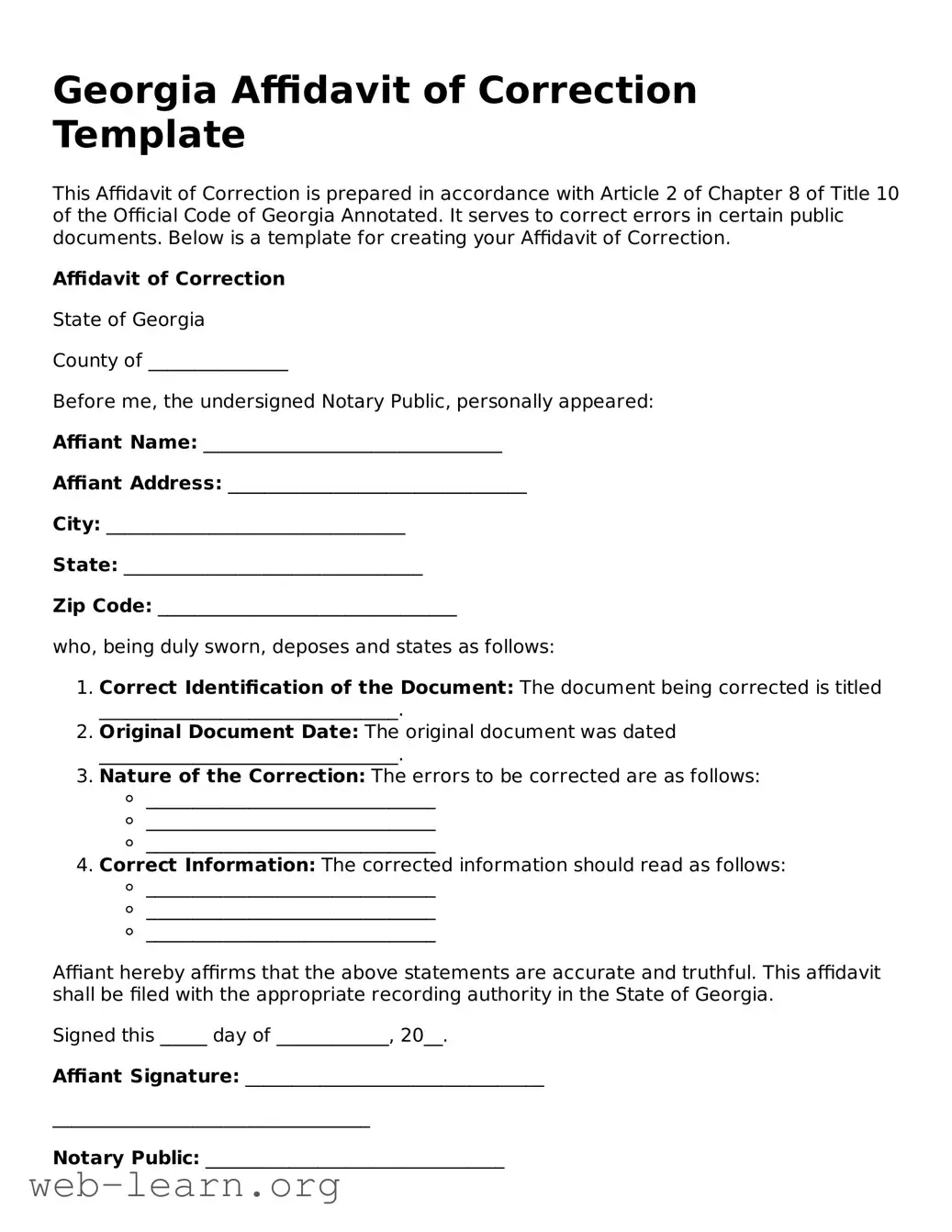Georgia Affidavit of Correction Template
This Affidavit of Correction is prepared in accordance with Article 2 of Chapter 8 of Title 10 of the Official Code of Georgia Annotated. It serves to correct errors in certain public documents. Below is a template for creating your Affidavit of Correction.
Affidavit of Correction
State of Georgia
County of _______________
Before me, the undersigned Notary Public, personally appeared:
Affiant Name: ________________________________
Affiant Address: ________________________________
City: ________________________________
State: ________________________________
Zip Code: ________________________________
who, being duly sworn, deposes and states as follows:
- Correct Identification of the Document: The document being corrected is titled ________________________________.
- Original Document Date: The original document was dated ________________________________.
- Nature of the Correction: The errors to be corrected are as follows:
- _______________________________
- _______________________________
- _______________________________
- Correct Information: The corrected information should read as follows:
- _______________________________
- _______________________________
- _______________________________
Affiant hereby affirms that the above statements are accurate and truthful. This affidavit shall be filed with the appropriate recording authority in the State of Georgia.
Signed this _____ day of ____________, 20__.
Affiant Signature: ________________________________
__________________________________
Notary Public: ________________________________
My Commission Expires: ______________________
